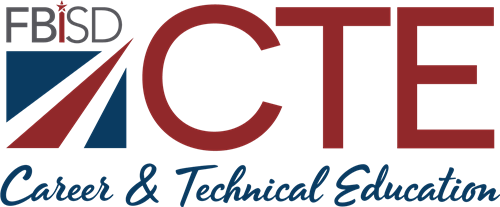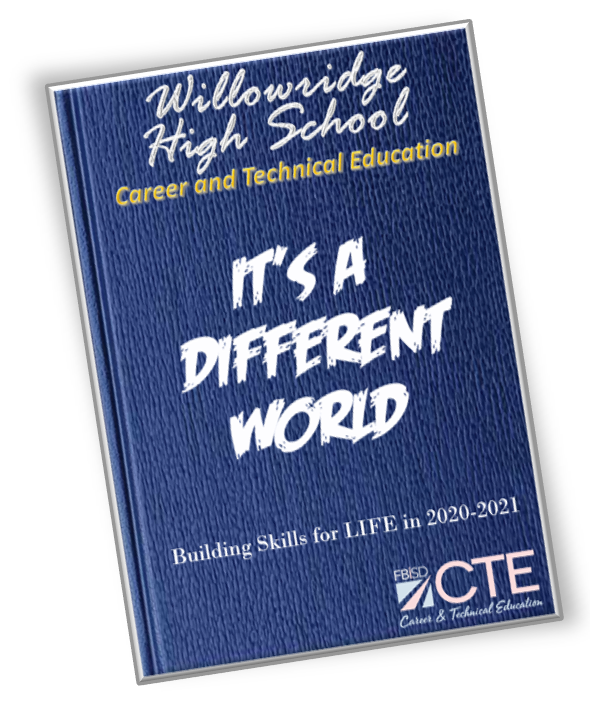CTE Programs
Page Navigation
-
CTE OUTSIDE THE CLASSROOM
Career and Technical Student Organizations (CTSOs) provide opportunities for students to engage in projects and competitions and to demonstrate their knowledge and skills toward career readiness. Students can enjoy chances to test their mettle against future colleagues in their career fields.
A best practice is to engage with CTSOs gradually over time. In year one, utilize the projects and competitions in the classroom to incubate the momentum. If one or more projects meets the high-quality requirements of the rubric, you could enter those. In year two, strategically add in the performance competitions to the calendar. The actual competitions will take place away from campus at a neutral location. The competitions replicate the high-stakes environment of the actual workplace.
Future Farmers of America
Ms. Avant, Sponsor

The National FFA Organization (FFA) was previously known as Future Farmers of America and is dedicated to preparing students for careers in the Agriculture, Food, & Natural Resources cluster.
The FFA is made up of 8,630 chapters across all 50 states with a total membership at more than 669,000.
The overarching vision of FFA is to “grow leaders, build communities, and strengthen agriculture.” The FFA focuses on more than just hands-on skills needed in the agricultural industry. Students in FFA also develop skills like leadership and communication that any employee would need.
DECA
Ms. Davis, Sponsor
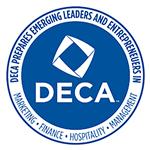
DECA is a CTSO that helps students develop college and career readiness skills. Specifically, DECA is focused on preparing students for careers in four clusters:
- Business Management & Administration
- Finance
- Hospitality & Tourism
- Marketing
While DECA is specific to students in those four career clusters, the organization’s viewpoint is that all of those careers fall into two overarching themes -- Entrepreneurship and 21st Century Employability Skills.
DECA provides many ways for students to develop and showcase these critical skills, including “challenges,” competitive events, school-based enterprises, educational conferences, and more.

SkillsUSA is the most versatile of all of the CTSOs. Formerly known as the Vocational Industrial Clubs of America, SkillsUSA is applicable for students in any career cluster or pathway.
This versatility is shown in the numbers, as SkillsUSA has more than 360,000 members and 19,000 chapters across all 50 states.
Overall, the SkillsUSA Framework is designed to cover three types of skills:
- Workplace skills
- Personal skills
- Technical skills grounded in academics
In order to help members shape these skills, the organization provides leadership training, employability skills curriculum, skills assessments, and various events.
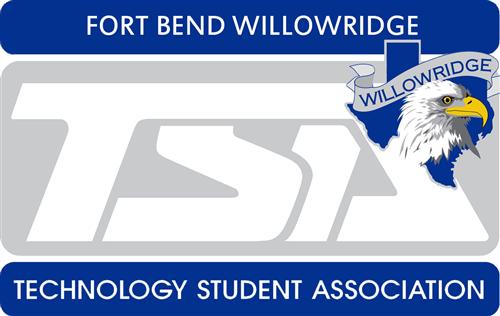
The Technology Student Association (TSA) is the only CTSO specifically focused on the Science, Technology, Engineering, and Mathematics (STEM) career cluster.
The organization’s mission is to “enhance personal development, leadership, and career opportunities” in those areas. This is accomplished both in and out of schools with a mix of curriculum resources, competitions, and other programs.
Currently TSA has more than 250,000 members in 2,000 chapters in nearly every state. The highlight for members is the chance to compete at state and national events, where they can demonstrate their knowledge and skills in a particular career pathway.
HOSA
Mr. Berry, Sponsor

HOSA - Future Health Professional (HOSA) is dedicated to preparing students for careers in one specific cluster: Health Science.
HOSA is one of the only CTSOs that has officially become international. There are more than 200,000 members in upwards of 3,500 chapters across all 50 states and a handful of other countries.
The mission of HOSA and its’ members is to “promote career opportunities in the health care industry and to enhance the delivery of quality health care to all people.”
This is accomplished by HOSA providing members with opportunities for:
- Practicing and honing hands-on skills
- Connecting with health care professionals and potential employers
- Competing in events to demonstrate their skills
- Taking on leadership roles in the organization
MJROTC Instructors
Captain Cummings
Lenroy.Cummings@fortbendisd.com
Sgt. Cadet
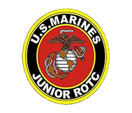
The purpose of the Marine Corps Junior Reserve Officers’ Training Corps program, commonly referred to as “Junior ROTC,” is to instill a value of citizenship, service to the United States, personal responsibility, and a sense of accomplishment. It does not seek any particular commitment to the military. The current legal basis for Junior ROTC is Section 2031 of Title 10, United States Code. That section is implemented by the Department of Defense. The governing directive, 1205.13 “ROTC Program for Secondary Educational Institutions,” is dated June 16, 1982.
The Department of Defense funds and sponsors JROTC through the Secretaries of the Military Departments. MCJROTC is funded and sponsored through the Office of the Secretary of the Navy. Legally, the JROTC program offered in a high school must be no less than three years. Each year of the program contains 180 hours of leadership instruction and application. The program may extend over four years. Your program meets these requirements. Similar programs are conducted nationwide by the other three military services.
🦅Celebrating National CTE Month at The Ridge with Eagles S.T.E.A.M. Fest 2021. CTE is more than just a class ... it's your future! It's a different 🌎than where you come from. #IAmCTE #FBISDCTEMonth #BlazeBlue pic.twitter.com/cdmx4twhlB
— WHS Eagles CTE (@WHSEaglesCTE) February 26, 2021


